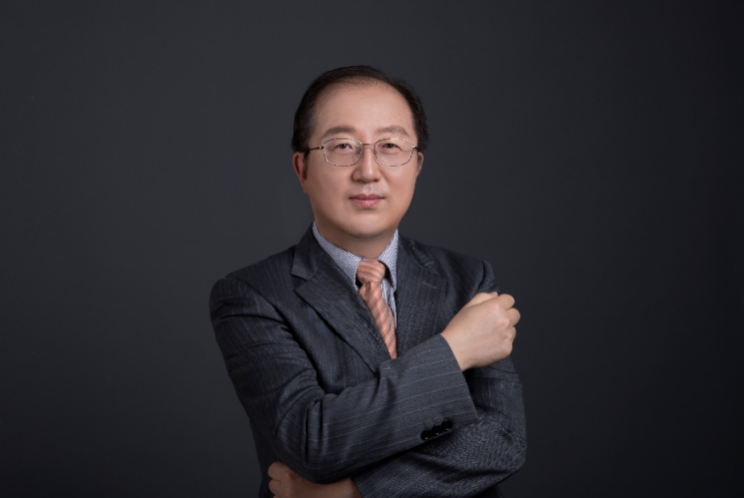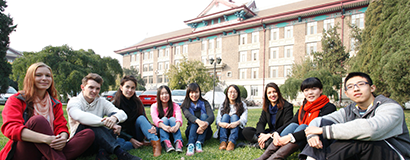The College of Management and Economics (CoME, formerly the School of Management) of Tianjin University (TJU) has produced a number of courageous and diligent seniors who have contributed their youth and enthusiasm to the development of the college at different times, in different disciplines and at different positions.
Recently, we have invited a number of our predecessors in the early years to look back at the past in the form of oral history. The "Oral History of CoME" column is now available to help faculty and students learn the history, spirit and culture of CoME, to remember the outstanding contributions of our predecessors who have devoted themselves to research and education, to foster the spirit of rigorous studies, patriotism and service, so as to further build consensus and to guide faculty and students to shoulder the responsibilities of the era. Let's listen to their stories.

In my 38 years of teaching, time is like water passing through a river valley. There are always some wonderful and unforgettable moments. Now when I look back at the road I came from, there is good scenery along the way, and I think I should always remember where I started from. How fortunate I am to be one of the first graduate of the CoME in TJU, and I could always use what I have gained from my alma mater on my journey.
01 Origin: the First Classes
In 1980,I became one of the first batch of students of industrial management engineering major in TJU. At that time, the Department of Industrial Management Engineering was the smallest "department" in TJU.
At the welcoming party, I met many teachers including Mr. Xiang Zi-gang, the head of the preparatory team, Mr. Yin Bang-yan, the secretary of the General Party Branch and so on. At that time, the title of professor was scarce,there were only 10 professors with foreign study experience in the whole country, among which were three (Mr. Xiang Zi-gang, Mr. Wang Ya-qiang and Mr. Cui Ke-na) working at TJU, so the faculty was second to none in the country.
We were like the 'chosen ones' and were given full attention and care by the teachers in the department, and all resources were utilized to the maximum.
Mr Xiang Zi-gang, the head of the preparatory team, also accompanied us on our first Mid-Autumn Festival at university - taking us to go boating at the Water Park. With 33 students sitting in several boats, Mr. Xiang Zi-gang asked us, "If we row together towards the lake island, how do you think can we get there faster?" There were different answers. Finally, Mr Xiang Zi-gang said, "If there was nobody to steer the boat, then we might get further and further away from the goal!"This was the first management education we received in practice - goal orientation.I was so impressed by this experience that I still recount it to my students in class today.
02 Departure: Facing Production Practice
The management education of TJU was proactively geared towards the economy and the actual needs of enterprises, which I personally believe reflects a very forward-looking educational philosophy.
Mr. Xiang Zi-gang, who was in his sixties at the time, was the head of the preparatory team and shouldered a lot of administrative duties.But he still persisted in taking us to major enterprises in Tianjin every Saturday.These visits helped me to deepen my knowledge of the industrial categories and the enterprises.
The undergraduate education at TJU fostered my strong interest in business management practices and a natural affinity for enterprises.For many years thereafter, I often found time to conduct research and analysis at the request of enterprises, analyzing problems with their managers and seeking ways and solutions.
These experiences have contributed to the formation of my management education philosophy. I have realized thatmanagement principles and methods must serve management practice, and management practice must be guided by management theories in order to be qualitatively enhanced. Higher education in management must do a good job for integration on the basis of general management education and professional management education, which is not only for the integration of different management professional courses, but also for the integration of professional courses about management with other professional courses, and moreover the integration of theoretical courses of the school with the actual needs of enterprises.
03 Collision: Sino-Foreign Exchanges
The special position of TJU in management education in China is also reflected in another aspect: the CoME of TJU places great emphasis on Sino-foreign exchanges. The exchanges between China and overseas reflected its openness and tolerance, its courage to change and to start a business, which was rare and valuable in the early days of economic reform and opening up.
At that time, Xiang Zi-gang, wrote on behalf of TJU to Herbert Alexander Simon (hereinafter referred to as "Simon"), Founder of Decision Theory and Nobel Prize winner in economics, and invited him to come to TJU to give lectures. From October 29 to November 6 in 1980, Simon gave five academic lectures at Tianjin University as a visiting professor. The invited participants were undergraduate students of industrial management engineering major, heads and teachers of other cooperative institutions preparing to establish management departments and leaders of some enterprises. The content shared was mainly basic management knowledge. The Management Department's resource office recorded his lecture with a tape recorder and I was fortunate enough to be assigned to compile the recordings. Soon after,Simon was invited to be an honorary professor at TJU.
Apart from Simon, the School of Management invited several foreign teachers to give presentations. I was impressed by Professor Tadanori Fujita from Yokohama National University in Japan, who mainly taught about ergonomics, such as how to arrange the factory, what kind of facilities and colors to use in order to make the workers safe and less fatigued. Professor Fujita taught at TJU for about a month, and when living in the Specialist Building, he invited several students, including me, to spend the Mid-Autumn Festival together.
In 1980 when the management education was resumed at the beginning of reform and opening up, the state established the Dalian Training Centre for Industrial Science and Technology Management in Dalian Institute of Technology (now Dalian University of Technology), and some American professors were sent by the US Department of Commerce to give lectures. The participants of the training center came from all over the country, most of them were managers of large enterprises and factories, and some of them were government officials and teachers from universities. This was the first time that China opened its doors to introduce a full set of foreign business administration knowledge, which was sensational at that time.
Mr. Xiang Zi-gang, head of the preparatory team of the School of Management of TJU (graduated from the Wharton School of the University of Pennsylvania in 1947), was the Chinese director of the Dalian Training Centre. And Mr. Wang Chuan-mian, director of the Industrial Management Engineering Department, was the Chinese registrar of the Dalian Training Centre for Chinese Industrial Science and Technology Management of the Sino-American Cultural Exchange Program.This indicates the involvement of TJU in the cultural exchanges between China and the United States and the introduction of foreign management knowledge.
04 Legacy: a Story of Fellow Students
There were no distractions like smartphone at the time. I remember many of my classmates were interested in geography and history, and we particularly enjoyed debating, discussing current affairs and delving into problems in the dormitory. The fellowship was good. We attended classes during the day and studied together in the evenings. The playground, the lake, Tian-nan Street ...... each scene was filled with our laughter and seemed in yesterday.
Through the efforts of the teachers in the Department of Management, seven students have been successfully admitted to the master's degree program. After graduation,all of them have outstanding prospects and become top talents in academia, elites in politics and pillars in business. These achievements are also a reward for the teachers' hard work and dedication.
We have often missed our alma mater since we left TJU, and most of us attended the centenary celebrations of TJU in 1995, the anniversary of our graduation homecoming
It has been 38 years since I graduated. My best youth has been blended with the memories of alma mater,and my heavy luggage has been filled with the gifts of my alma mater.I miss all that this place has brought me, and I wish TJU and CoME the best in the future.
(This article is an Oral History compilation, with some additions and deletions, of the results of CoME annals revision. Compiled by: Yu Wenhui. If you wish to reproduce this article, please contact us by leaving a message on the WeChat platform.)
The Introduction of Li Cong-dong:
Li Cong-dong, PhD, a Professor II and a PhD supervisor, has served as: Head of Industrial Engineering Department of Tianjin University (1999-2005), Dean of School of Management of Jinan University (2005-2011), Founding Dean of School of Emergency Management of Jinan University (2009-2011), Director of Institute of Enterprise Development of Jinan University (2005-2013), Executive Director of Management Committee of Zhuhai Campus of Jinan University (2013-2020).
He was appointed as one of the first batch of Zhuhai Specially Appointed Scholars, and was awarded three Provincial and Ministerial Science and Technology Progress Awards. He is now concurrently holding leadership positions in academic and social organizations, such as Vice President of the Industrial Engineering Branch of the Chinese Mechanical Engineering Society, and has been appointed as Chairman of the Academic Committee, Honorary Professor and Adjunct Professor of 15 universities, including Tianjin University and Macau University of Science and Technology respectively. He has presided over and planned the implementation of more than 70 national, provincial and ministerial level or horizontally commissioned scientific research projects, including the National 863 Program, the National Natural Science Foundation of China and the National Key Research and Development Program, and has published 6 books (monographs, edited books and translations) and over 300 academic papers. He is currently presiding over one project of the National Natural Science Foundation of China (2021-2024).
He has long been engaged in teaching and research in the fields of intelligent management, interactive product innovation, modern industrial engineering, modern manufacturing management, urban public safety management, etc.
Out of deep affection for his alma mater, he now serves as the President of the Tianjin University Alumni Association in Guangdong Province and continues to serve his alma mater and alumni.
By College of Management and Economics
Editor: Sun Xiaofang






